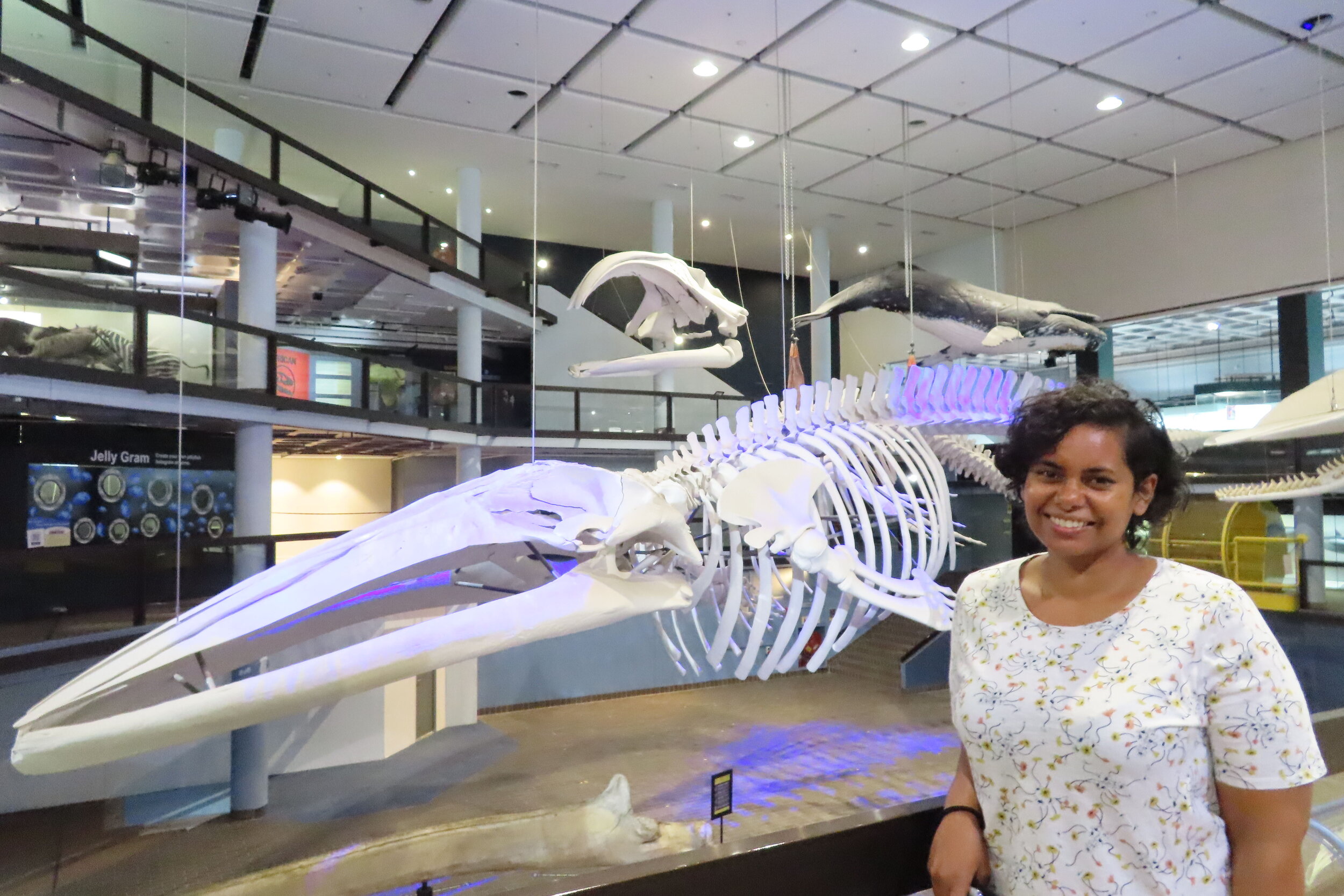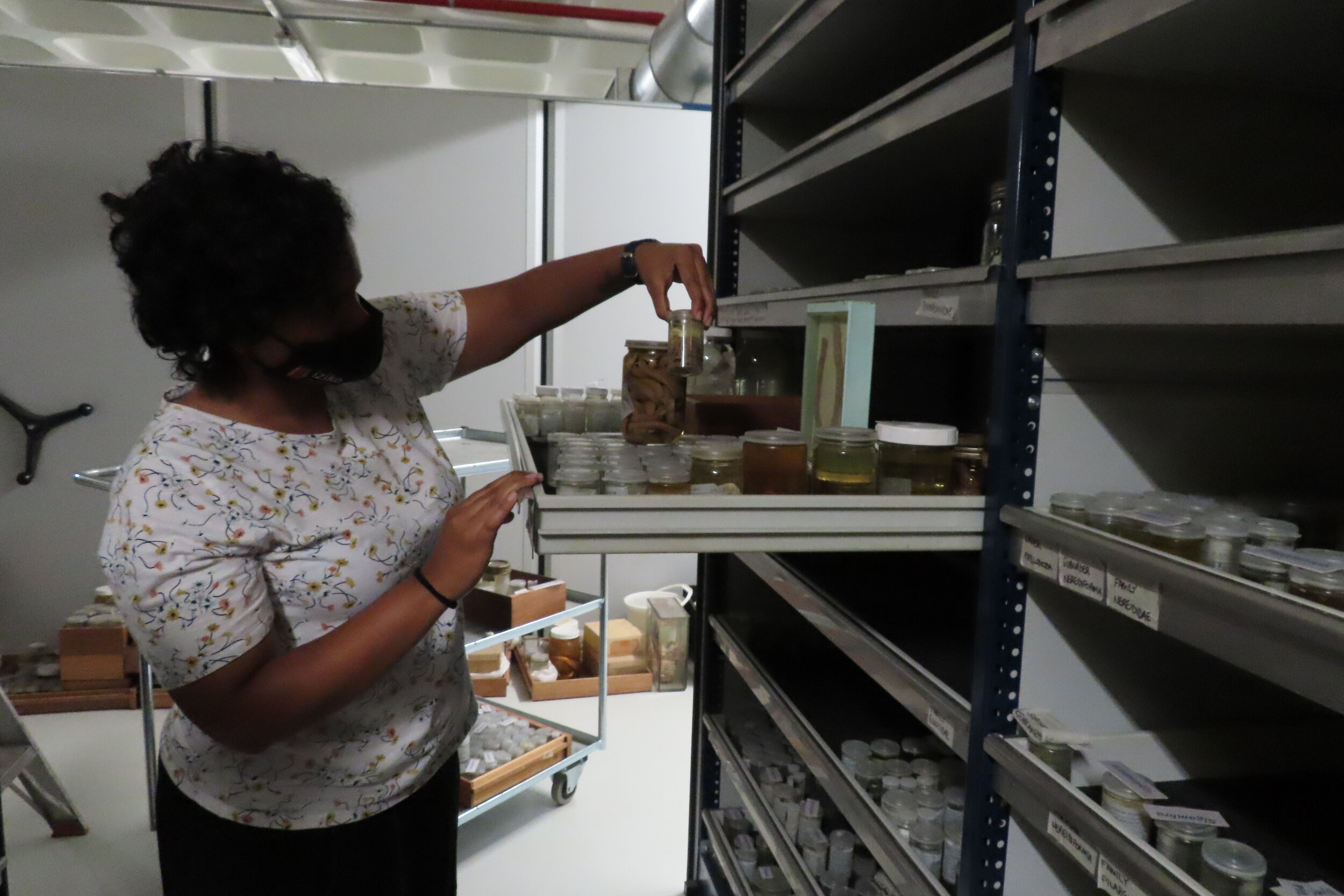From childhood curiosity to career bliss
In honour of International Day of Women and Girls in Science, the CWBR took a trip to Iziko South African Museum (ISAM) in the Cape Town CBD to catch up with an old friend, Dr Melissa Boonzaaier-Davids. Melissa first connected with the CWBR in 2019 when volunteering as a facilitator for the outdoor education programme. She is currently working as an Assistant Curator (Marine Invertebrates) at the Museum and is a Postdoctoral Fellow at the University of the Western Cape and is incredibly passionate about what she does.
Born in Strand and raised in Kuils River, Melissa would regularly visit the seaside with her family. She can vividly recall the first time she realised her intense fascination with the ocean.
“I had an epiphany when I was seven years old. I remember I was at the beach and my feet were in the water and suddenly I was wondering, ‘what is in the sand?’ and then I thought, ‘what is in the ocean?’. From then on, I knew I needed to study the ocean...at first, I wanted to be a mermaid, then a lifeguard, then a pirate. Only later, in my primary school years, did I hear about the term marine biology. And I thought, ‘there it is, that’s the word I’ve been looking for!’”
Having supportive parents who nurtured her naturally curious mind and inspired by an uncle working as a Biology teacher and an aunt working in conservation and invasive tree species, Melissa decided to pursue a degree in Marine Sciences. She applied to study Biodiversity and Ecology focusing on marine-related modules at Stellenbosch University and earned her BSc and BScHons degree a few years later.
“I have always had a curiosity about what things are and how they work. For instance, when I started my first year of varsity I was adamant that I would be the one to discover the giant squid, you know the myth of the “kraken?”. Although this feat was snatched away from her in late 2005 by a team of Japanese scientists, incredibly, Melissa would in fact fulfil her childhood dream of discovering a new marine species. While working on her PhD research co-supervised by Dr Wayne Florence (Curator/Scientist at ISAM), she contributed to the discovery of a new genus and nine new species of marine invertebrates called moss animals or bryozoans. Proof that dreaming big reaps big rewards.
Now she, along with a dedicated Marine Biology team, oversees more than 129,000 preserved marine specimens, some dating back nearly 200 years. Melissa says working at the Museum, established in 1825, not only satisfies her love for scientific study of marine creatures but also provides the “perfect mix of both the science that we do, but also the social history aspect and learning about our origin and existence. Since joining Iziko she developed a keen interest in better understanding how our ancestors lived and their connectivity with nature.
Melissa took one of these ideas to the public in 2019 when tasked with organising Iziko’s annual Museum Night and decided to center the event around the Indigenous peoples of South Africa. The evening included a workshop that gave visitors insight into how these early hunter gatherers learnt to live and adapt to their environment. The event was a resounding success, but her proudest moment of the night was watching the traditional opening ceremony performed by the Western Cape Khoisan Council who had reached out to the Museum in support of the event. Melissa is eager to organise follow-up events and workshops showcasing the importance of Local Indigenous Knowledge. Watch this space!
What started out as a curiosity and fascination for the ocean eventually grew into a passion and eventual career path. Dr Melissa Boonzaaier-Davids is a true role model for girls and young women in South Africa wanting to pursue a career in Science. We wish her the very best with her work going forward and look forward to further collaboration in the near future.


